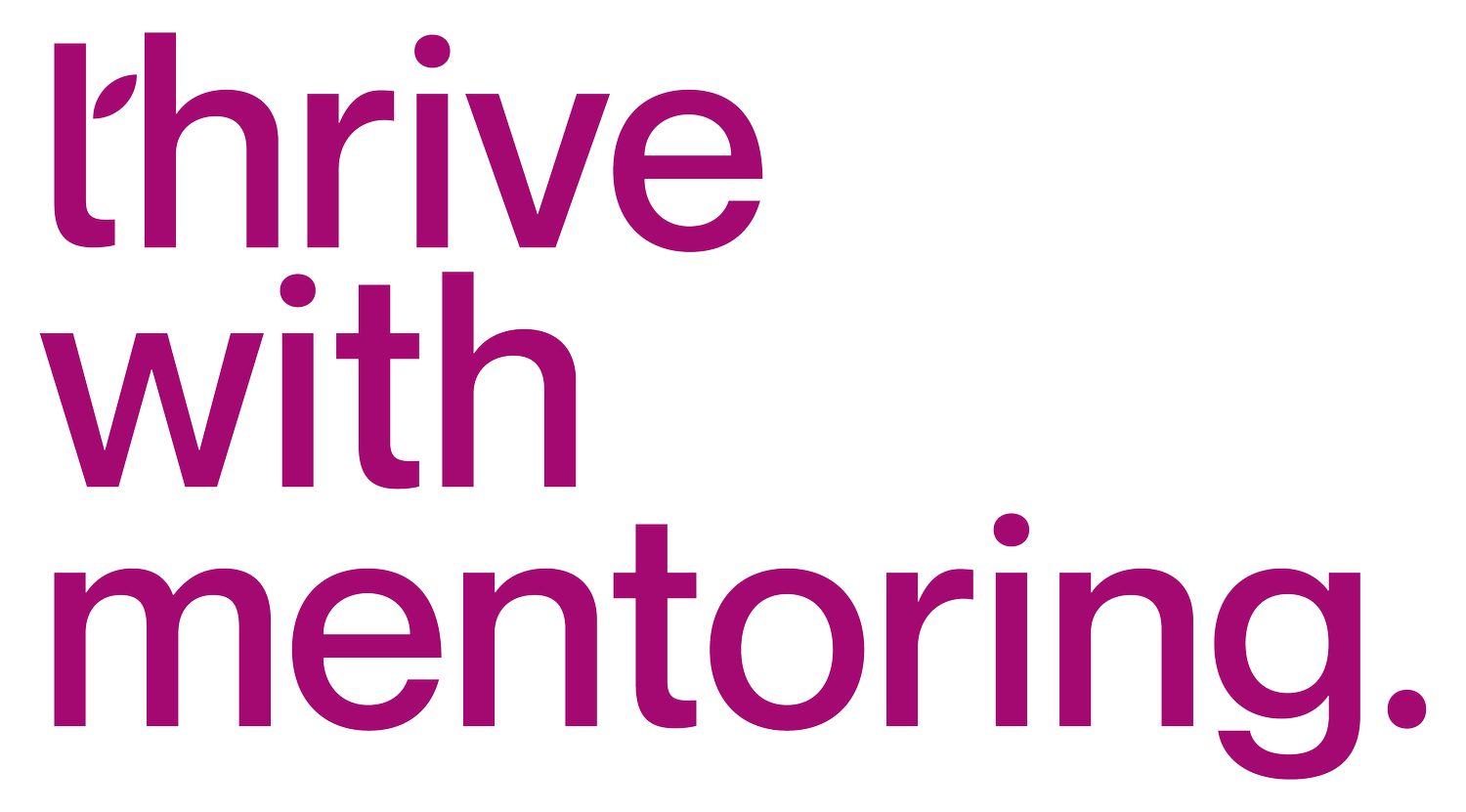Having a Mentor in the same field as yours, makes all the difference!
We need many mentors in our lifetime. Some help us with functional skills relevant to specific projects and assignments, others we can speak about our challenges to balance our professional and personal lives. Thrive, women to women mentoring, possibly falls more in the later category.
Over so many years of being mentored and of being mentor, I have come to realize that different mentors benefit us in different ways. The mentoring relationship always need to have specific goals and outcomes, and is effective when it is focused for a specific duration, before it might become 'on-demand'. Nothing that’s difficult to fathom but often very tough to stick to and achieve. Here's I want to share with you the benefits of being mentored by someone who’s experienced within your function - be it HR, Finance or Marketing.
One of my earliest mentorship experiences with an HR for HR mentee, was about helping the mentee put together a book of all his learning in his field. He is a compensation and benefits expert of some renown and successful in what he does. But he felt there were gaps in what the HR fraternity was being taught in schools versus what really worked on the ground. How will you teach HR folks to think independent of books and case studies, especially in the field of compensation? How do you value work? What kind of insights does the business look forward to from you? He wanted to put all of that into a book. My background in HR helped tremendously in brainstorming with him, asking the right questions and ultimately getting his book published.
A few years later, we met again for another mentorship journey. He had realised that in company mentoring was always going to be tricky. There were plenty of political aspects to keep in mind and it was tough to get mentored, when any admission of insecurity or doubt could lead to other repercussions. That again limited his ability to truly network or ask his mentor to be his person solely. My current “outcome- based” relationship is based on supporting him with how he networks, while managing both the relationship and the politics of that relationship. We work with an Action Learning Mindset. The idea is that every meeting or call that we participate gets us “actionably” one step closer to what the outcome is supposed to be. In the context of this gentleman, he will sometimes have to go back and see why he isn’t able to network with a few people who “ideally” should be instrumental to his success. He has to examine the stories in his head that he has around these people and how that affects his “actions” with them. A lot of soul searching and introspection leads to the actions. An often underrated aspect that a mentor brings is to give the mentee time to feel what they are feeling.
HOW DOES MENTORING WITHIN A FUNCTION ADD VALUE TO THE FUNCTION?
Mentoring within a function helps build a robust and reliable network of people who raise each other up. It helps individuals develop and maintain a personal edge, while ensuring the cohesiveness of the company’s narrative. It’s an action based development plan that works around your own actions and works towards the goals that you’ve set for yourself. Your mentor works as your yardstick, an experienced professional who’s been there and done that. The mentorship serves as a progressive route between individual doubts, organisational needs, internal gratification and external customer service. It’s a huge network that mentorship will cater to and develop. At times I feel that there are so many unaccounted for ripple effects of flourishing mentoring relationships that create a mentoring culture within an organization - that help not just with employee development but also with engagement and retention.
Did you know that mentees are five times more likely to be promoted than those who were not being mentored? Also retention rates were significantly higher for mentees. I vouch for this. I stuck by one of my longest employee stints in the same organisation, just because I had multiple people there who mentored me - some informally and some formally and yet some others in the corridors. Many of those mentors are peer mentors today, and some have become lifetime ones.
Earlier you were entrusted to your boss’ care. It was implicit that your boss would teach you the ropes and would be your mentor. Times have changed now. In many cases, unless explicitly outlined, it becomes a transactional relationship - with one person reporting to many managers. It becomes tough for each boss to teach you the work and often people learn by doing and failing and doing again. In such times, it is but imperative that a strong mentoring program exists within the vertical itself. The knowledge is protected and enhanced and more importantly is passed onto fresh blood without the semantics of who reports to whom.
General Motors CEO Mary Barra said - “When building your network of mentors, be honest about your mid- and long-term career goals, and how hard you are willing to work to achieve them. Then turn to those who best know you and your work. Earn their respect and trust so they will extend their personal capital to you with confidence and be your professional champion.” This I believe should be the cornerstone of our in- function mentoring journeys.
More power to you all!
